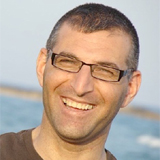Tutorials
| Tutorial 1: Arabic Ontology Engineering | ||
 |
 |
 |
|
Dr. Mustafa Jarrar |
Dr. Mounira Harzallah |
Dr. Hedi Karray |
|
Dr. Mustafa Jarrar is an associate professor of Computer Science, at Birzeit University in Palestine. Before joining Birzeit in 2009, he was a Marie Curie Fellow at the University of Cyprus (2007-2009), and was a senior Research Scientist at Vrije Universiteit Brussel (1999-2007), where he completed his Masters (2000) and PhD (early 2005). Prof. Jarrar published +75 articles and refereed reports in the areas of Ontology Engineering, Lexical Semantics, Semantic Web, and Databases. He is, a full member of the IFIP2.6 on Database Semantics, the IFIP2.12 on Web Semantics, the IEEE Learning Standards Committee, and the CEN/ISSS ICT Skills, Prof. Jarrar is also the founder of both Sina Institute For Knowledge Engineering And Arabic Technologies, and the Palestinian EGovernment Academy , at Birzeit University. |
Dr. Mounira Harzallah is associate professor at the university of Nantes and member of the laboratory of computer science of Nantes atlantiques (LINA), since 2001. |
Hedi KARRAY received his Ph.D. degree in the area of applied informatics from the University of Franche-Comté, France, in 2012. Since then, he has been an Assistant Professor at Haute Alsace University for one year. Since September 2013 he holds an Associate Professor at the National Engineering School of Tarbes of the National Polytechnic Institute of Toulouse, Part of the Federal University of Toulouse, and member of Production Engineering Laboratory. In 2016, he had a visiting researcher position at the State University of New York at Buffalo (UB). Since his stay at UB, Dr. Karray became senior scientist at National Center of Ontological Research. Hedi Karray is also active member at few research groups as IFAC, InteropVlab and IEEE SMC. The research topics of Dr. Karray center on Ontology-Based Engineering, semantic interoperability and decision support systems. |
|
Abstract: The importance of linguistic ontologies, wordnets, and terminological databases is increasing in modern and multilingual applications, such as e-commerce, biomedical informatics, information search and retrieval, question-answering and NLP-based tasks, sentiment analysis, interoperability and data integration, big data, among others. Developing ontologies is known to be a challenging a task and require interdisciplinary skills in logic, philosophy, linguistics, and computer science. |
||
| Tutorial 2: Semantically driven RESTful service composition | ||
 |
||
|
Dr. Michael Mrissa |
||
| Dr. Michael Mrissa is full professor at the Universite de Pau et des Pays de l’Adour (UPPA). He received his PhD from the University Claude Bernard Lyon 1 in 2007 and his accreditation to supervise research (HDR) in 2014. His main research interests relate to service-oriented computing, semantic reasoning and the Web of Things. He has published over 60 peer-reviewed papers in conferences and journals. He is involved in the ANR project ASAWoO1. | ||
|
|
||
| Tutorial 3: Cybersecurity & Internet Governance: Issues, Novel threats & trends | ||
 |
||
|
Dr. Belhassen ZOUARI |
||
| Dr. Belhassen Zouari is a Professor in Computer Science at the University of Carthage-Tunisia at the Higher School of Communications Sup’Com. His activities include research works in the fields of verification of automated systems and security issues. He worked on formal verification methods based on colored Petri nets and applied the related techniques in various fields as Flexible Manufacturing Systems, Wireless Sensor Networks and Business Process Management. He was at the origin of the Tunisian national plan in computer security from 1999 that led to the setting up of the National Agency in Computer Science (NACS) in 2004. He was the head of the NACS from 2007 to 2010. NACS hosts the Tunisian CERT (Computer Emergency Response Team) which is the first internationally recognized CERT in Africa. Belhassen Zouari is an Engineer in computer Science, has a Doctorate (French PhD) from the University of Paris 6 (1993) in Computer Science, and an “Habilitation Universitaire” from the University of Tunis (2005). | ||
Abstract: Because of the complex features of the Internet and its world wide spread uses, multiple security measures – both technical and non-technical – are required to provide adequate protection against its misuse. An important protection mechanism within a harmonized international legal framework is necessary to combat cybercrime and to build trust and confidence in e-services. |
||
